Ah, the age old question that many of us wonder before climbing into our workout gear: how long should my workouts be?
You may be wanting to do super-short effective workouts so you can get on with your life (or Netflix and chill), or you may be targeting a specific fitness goal and are plagued with the worry of whether you’ve done enough... wouldn’t it be magic if we could find out the formula for the perfect workout?
Alas, no. There is no perfect formula. Whether you’re a fitness freak or a workout newbie, it’s always best to align your workout routines with your goals. And since there is no ‘one size fits all’, you need to get to know what you want to achieve before assigning a time limit to your workouts.
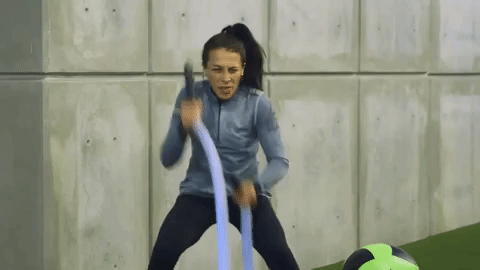
Read on to find out how long you should be working out if you want to hit some popular fitness goals: from workouts to build muscle, to workouts to lose weight, we’ve got the downlow on how long you should be working out, and how often. And it’s also key to keep a lookout for some physical signs which will signify whether you’ve worked out long enough - keep your eyes peeled!
How long should my workouts be?
The glorious thing about working out is that it can encompass a huge variety of activities. You don’t have to solely go to the gym and pump iron or run endlessly on a treadmill to hit your fitness goals. Mixing up your routines with MoveGB guarantees fun and motivation, whilst igniting a variety of different muscles in the body!
When it comes to workout length, we can advise on how long to spend according to popular fitness goals… but it will also broadly generalise body types, fitness level and individual goals. Workouts also depend on sleep and diet, so don’t drag out a session if you know deep down that you’ve already given it all you’ve got.
How long should a workout be to build muscle?
When you’re wanting to build muscle, you must start with what you can handle, and build it up as your strength increases. Be sure to hit the gym hard and utilise the time you have to get an effective workout - no dilly-dallying between reps! But when it comes to weight training to build muscle, there is debate about how long these particular workouts should be.
When you begin your session, testosterone levels rise and peak around 30-minutes into your workout, and then begin to decline after 45-minutes. The hormone, cortisol, begins increasing, and as it’s known to be a hormone that eats away at muscle tissue and increases body fat storage, many stop working out beyond 60-minutes because of this.
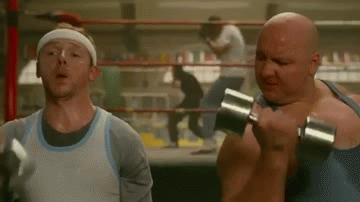
The fear of cortisol unravelling efforts has led many to believe that 60-minutes is the maximum for a weight lifting workout… however studies have found that a rise in cortisol does not correlate with decreases in strength! There are even links between a rise in cortisol and type II muscle fibers.
So how long should your workout be to build muscle? It depends on your fitness programme, how long you take rests between your reps, and how hard you’re going at it, but don’t be constrained by the fear of cortisol.
Dedicate between 60 - 90 minutes on muscle building workouts in a session, or if you’re going to be working really hard with short rests, 30 - 45 minutes will be equally as effective. Especially if you know your focus will waver after a long period in the gym.
Read more: 4 Weight training myths for women
How long should I workout to lose weight?
Having a long-term goal of losing weight can be detrimental to your motivation. It’s key to focus on the feeling after each workout and celebrating the wins every time you record an improvement from one workout to the next. There are more encouraging ways to measure your health than focusing on the scales.
But if losing weight is your main aim, then let's dive into the facts. There’s no quick hack or a magic short workout - it comes down to focus and drive.
According to the American College of Sport Medicine:
- 150 - 250 minutes of exercise a week is what’s needed to lose weight.
- More than 150-minutes of moderate-intensity activity is associated with modest weight loss.
- 250-minutes of moderate-intensity activity will prevent weight regain - AKA weight loss for good.
- All this also depends on you keeping your healthy eating plan on track.
So with those advised workout lengths to lose weight, you could look at it in a variety of ways - when you break it down to sessions, the grand total of a week’s worth of recommended exercise doesn’t seem so intimidating!
- To hit that 150-minutes per week, you could do 2.5 hour long sessions or 3 - 4 45-minute workouts a week.
- Ramp those hour long workouts to 4 times a week (or 5.5 45-minute workouts a week) and you’ll be smashing the 250-minute activity mark!
HIIT sessions, BodyPump, weights, cardio, yoga, pilates, boxing - the options to get in your activity sessions are endless. And when you mix and match your workouts across a variety of activities, an active week suddenly looks more exciting in comparison to hitting the same gym repeatedly.
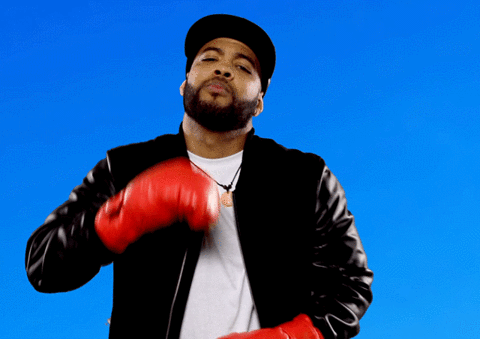
If you’re able to fit in frequent workouts every week, you can begin to take control of ramping up the intensity on certain days. Workouts to burn fat are going to be challenging, but if you keep your sessions consistent, you will see improvements. It’ll get easier to achieve!
And don’t forget those ‘rest’ days. When we say ‘rest’, we don’t mean take a long slob-out on the sofa and pop your feet up - fit in a stretching yoga session or a 60-minute walk at a moderate speed. As we mentioned before, exercise shouldn’t have a pressured focus on weight loss. Exercise has to become integrated into your lifestyle, it has to be a daily occurrence, it has to leave you inspired to move more - the benefits will certainly impress you!
Read more: Are you in a loving relationship with you workout?
The benefits: Why the length of your workout doesn’t have to matter
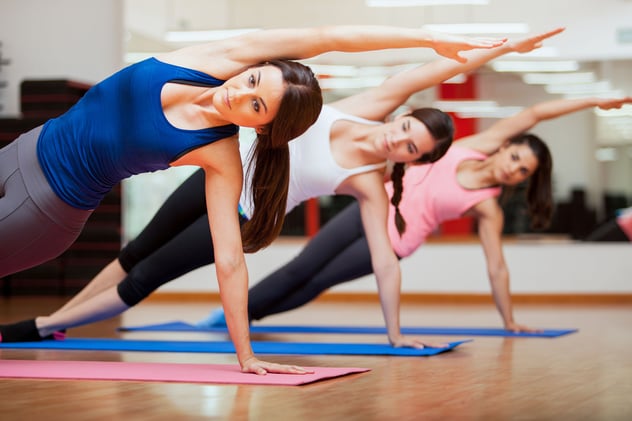
There are those who go HAM at their workouts, there are those who are smartly utilising their gym time, and there are those who struggle with motivation every time their session rolls around. No matter which fitness persona you fill, there are some tell-tale signs that show you had a substantial workout:
1. Elevated heart rate
If you find your heartbeat isn't increasing, then it's most likely that you're either not working hard enough, or in some rare cases, you could be suffering from overtraining. You should aim to exercise within 55-85% of your maximum heart rate for 20-30 minutes during your aerobic sessions. You can calculate your maximum heart rate here.
2. Enjoy that endorphin high
A successful workout will leave you feeling happier, healthier and more revitalised than you did before you began. Ride that endorphin high safely in the knowledge that you gave it all you got and your body is zinging with happiness!
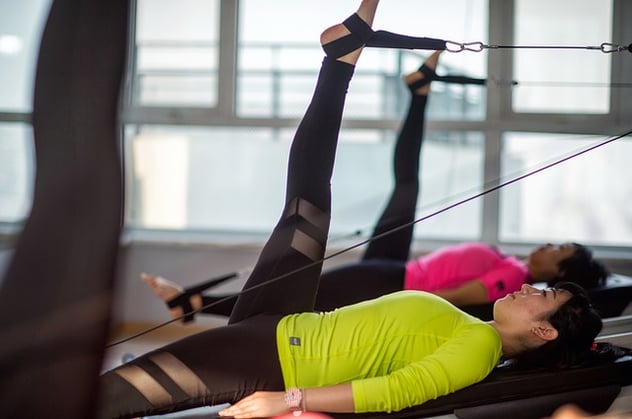
3. Less natter
Training with a gym buddy? Awesome! But if you find yourself consistently being able to have a good natter with them during all your workouts, then it's time to pipe down and ramp up the intensity.
Less natters and more of what matters! If you're looking to increase your fitness, then make sure that there’s at least one session a week where you're training at an intensity that makes holding a conversation near impossible. So if you leave the workout without having your usual deep chats because you were too puffed, you know you were werkin’ it!
4. Being sore is ok… sometimes
Many believe that they haven’t had a long enough workout unless they really feel sore in the next few days. Soreness is normal after starting a new activity, but don’t let it put you off!
It's perfectly normal and your body will get used to moving more as you increase your workouts. It’s a sign that your body is adjusting to the activity, and it will lessen as you continue your fitness journey. And if not? Perhaps decrease the intensity.
5. Seeing improvement over the weeks
There’s nothing better than seeing steady improvements as you continue to workout. Be sure to take note of how much you’re lifting, how far you can run, how much energy you had in class, or how much resistance you’ve increased on your spin bike. Whenever you question yourself on whether you’re doing this ole thing called ‘fitness’ right, just look how far you’ve come and give yourself a hearty pat on the back.
When it comes to exercise, the duration of your workout is actually pretty insignificant - studies have found that an average session of 20 minutes of high intensity exercise is enough to keep you fit. So the most important thing about exercise is turning up to do it - regardless of how little time you have! It's what you do in the time that you have which really matters, and this is what will help you make changes to your body and overall fitness.


